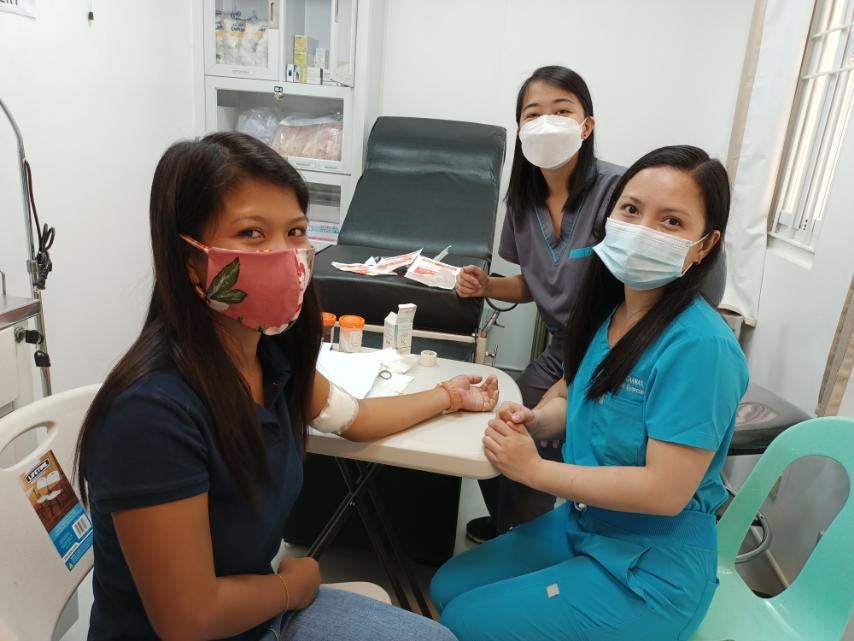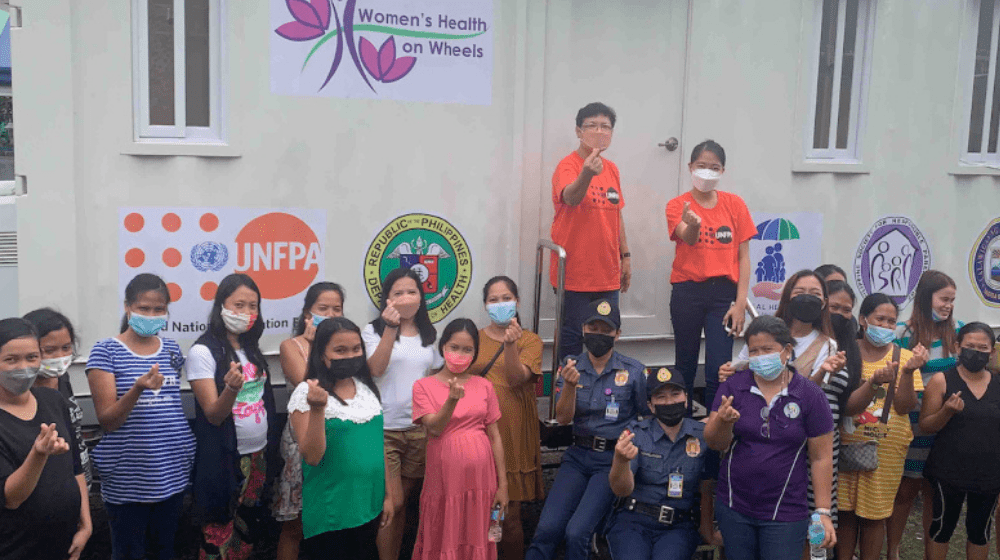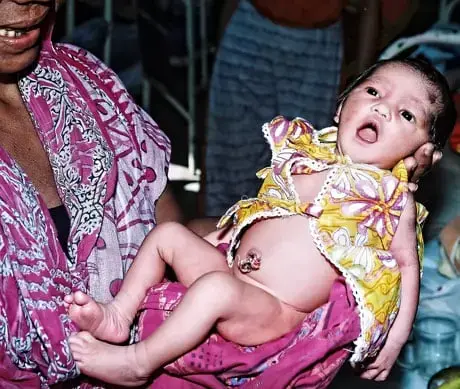SAINT BERNARD, Southern Leyte, Philippines – A new mobile sexual and reproductive health clinic has been deployed to the devastated province of Southern Leyte following December’s Typhoon Rai/Odette, the third strongest storm on record to hit the northern hemisphere.
Designed to reach remote areas, Women’s Health on Wheels (WHoW) provides rapid response to women in dire need due to climate disasters and other emergencies. Funded jointly by UNFPA and the government, the mobile unit is the first of its kind in the country to address medical issues surrounding reproductive health and gender-based violence in the aftermath of a crisis.
“I’ve wished for something like this,” said Dr. Karen Villanueva, the Municipal Health Officer of Saint Bernard. “It enables our staff to reach the isolated and disadvantaged with basic health services.” Set up through the joint efforts of female professionals working in the field of women’s health care and safety, WHoW is staffed by an obstetrician, two midwives and two nurses (all women except for a male midwife).
Reaching the remote

The fully-equipped truck began operation last month in the Eastern Visayas region, one of the areas hardest hit when Super Typhoon Rai/Odette struck. The storm affected more than an estimated 10.3 million people nationwide, flattening homes and destroying crucial medical facilities and other infrastructure. Of the estimated 98,000 pregnant women in typhoon-affected areas, about 24,000 are at risk of obstetric complications. Approximately 13,000 cases of gender-based violence survivors will seek care.
Jocelyn, 30, went to the Women's Health on Wheels for family planning services. © UNFPA Philippines
To date, WHoW has delivered three babies and provided prenatal check-ups to around 60 pregnant women and has also conducted health and protection information sessions with female patients. With its ability to reach far-flung evacuation centres and communities that lack adequate health-care resources, WHoW hopes to provide a life-saving service to vulnerable women and girls.
Following disasters, pregnant women suffer more miscarriages and premature deliveries, while girls and women experience higher levels of sexual violence and domestic abuse. An assessment by the International Organization of Migration after Typhoon Rai/Odette found that 95 per cent of Philippine evacuation centres did not have women-friendly safe spaces, raising the risk of gender-based violence and poor health outcomes for mothers and children.
Dr. Grace Viola, maternal health/family planning programme officer at UNFPA who oversees the mobile unit, says the agency is working with the Department of Health to invest in the deployment of more needed WHoW units in a country prone to extreme weather events, including torrential rainfall, flash floods and landslides.
“After the typhoon, I worried where to deliver safely because our birthing facility was washed away by the strong waters,” said Mariel Bucag, 29, the first woman to deliver in the mobile facility (it was a baby girl). “Thankfully, WHoW was here.”



